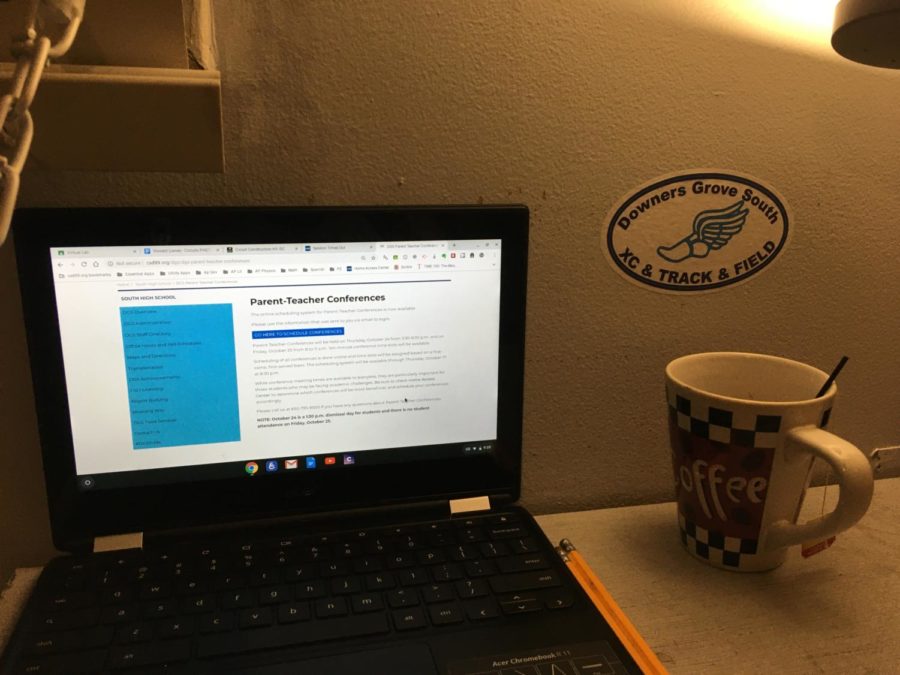A conference about conferences
There is a lot of stress when it comes to figuring out which classes you really need help with.
It’s that time of the year again. Parent-teacher conferences are approaching. Students are groaning and parents walk into school knowing exactly what they are about to hear. Let’s be real — parent-teacher conferences are not just boring, but they also fail to provide meaningful feedback for students and parents.
What does this mean? We should place less emphasis on them. We do not need to lose an entire day and a half to affirm things that should be known to us (at least in most circumstances).
There are just so many ways to assess a student’s performance without teacher intervention. You can find your grades on Home Access Center. On top of that, almost all parents would know their teen’s habits in regard to their schoolwork.
Parent-teacher conferences simply reassure the truths that are readily available to us.
Say a parent walks into conferences for their brilliant child that they already know has a 4.9 GPA. What possibly are they going to hear? They are going to be reassured that their kid is a genius for the 50th time and are probably going to put that on Facebook.
You could say that conferencing can be helpful for students who are struggling with school. A teacher can easily relay the academic troubles to a concerned parent.
What will this do? Nothing.
A teenager is old enough and emotionally mature enough to make their own decisions about school. Furthermore, most parents would be aware of any poor habits a teenager has in regards to schoolwork.
Ultimately, it is the student’s responsibility to make changes to better themselves academically. The person who knows the path to improvement best is the student.
So yes, conferences are not beneficial most of the time. But are there circumstances that really do call for conferencing?
These situations do exist, but this shouldn’t be an excuse to devote two whole days to conferencing.
Some students may have academic problems that are difficult to pinpoint at home or are hard to self diagnose. These problems can be hard to see such as depression or anxiety. These circumstances do call for teacher intervention of some sort!
However, this should not be an excuse to disrupt the regular schedules of the vast majority of parents, teachers and students.
There needs to be better communication between parents and teachers that don’t leave as big of a blueprint (no pun intended) as parent-teacher conferences on their schedules. It is important to have an understanding of certain student situations without hurting the majority.
The general gist is that parent-teacher conferences are a necessity, but they need a better implementation. Conferences need to be less obstructive for the majority of people.


